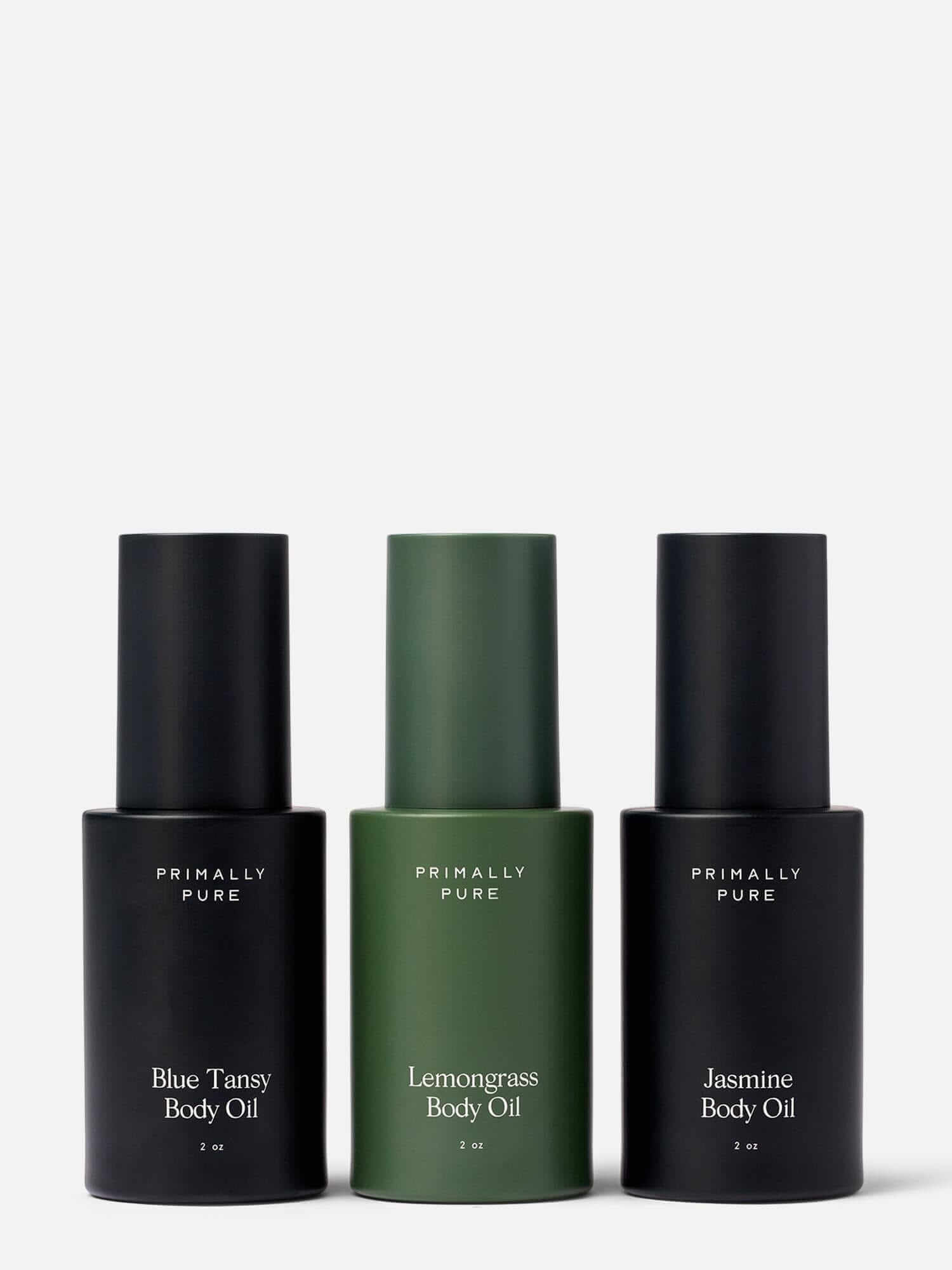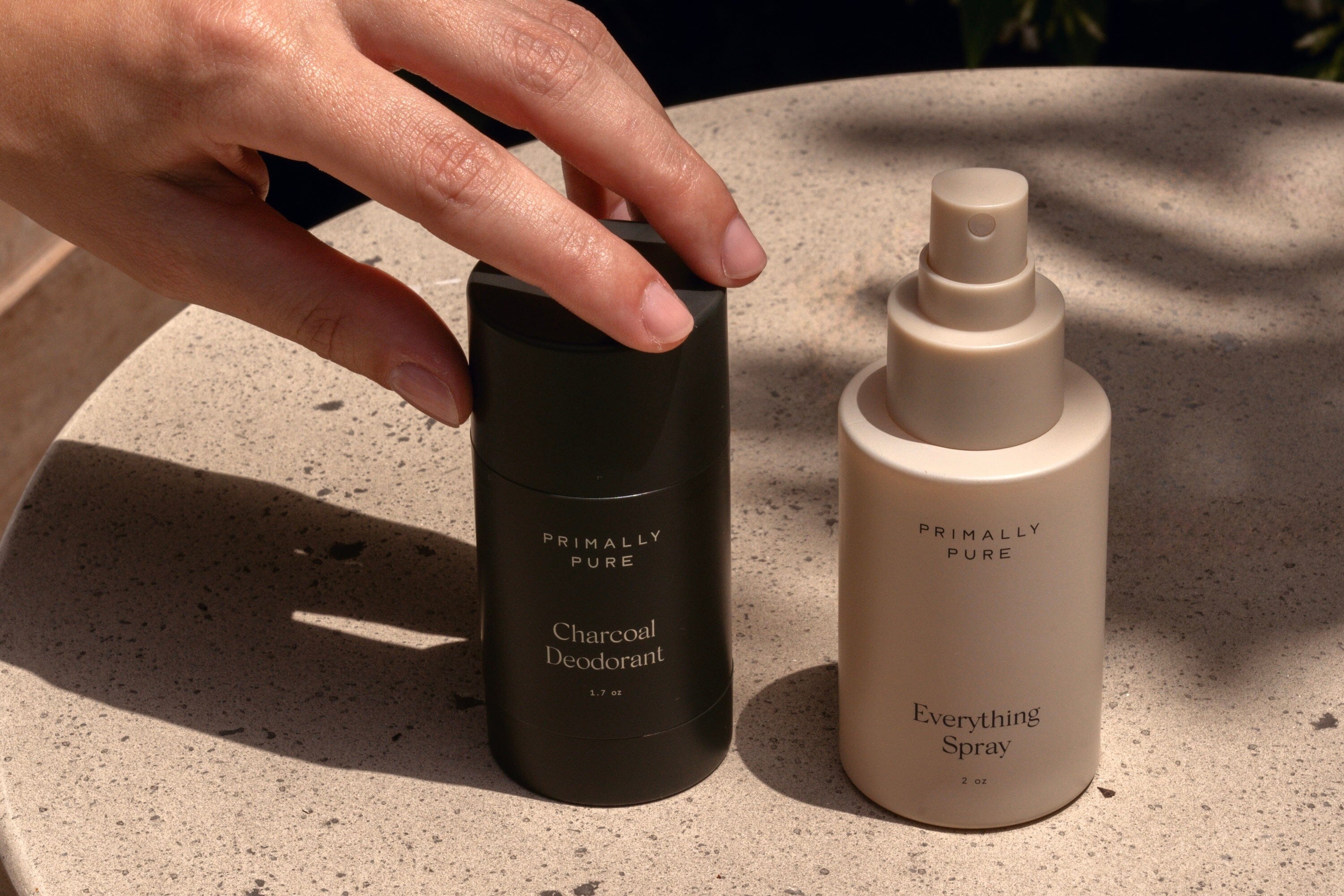Q&A with Dr. Will Cole: The Truth About "Cortisol Face"
Summary
In this exclusive interview, Functional Medicine Practitioner, Dr. Will Cole, explains the nuanced relationship between cortisol and our health. Find out how chronic stress impacts the skin and his tips to restore homeostasis, holistically.TikTok is obsessed with "cortisol face" and how elevated levels of cortisol, a.k.a the "stress hormone" can lead to face puffiness. We sat down with Dr. Will Cole to break down this latest trend and dive deeper into the nuanced relationship between cortisol production and your health. Keep scrolling to learn more about why our bodies produce it, symptoms of chronically high + low cortisol, plus professional tips to balance it. We can't wait to share this interview with you to keep unpacking the relationship between stress and your skin.
Tell us a bit about yourself.
"I’m Dr. Will Cole, a leading functional medicine expert who consults people around the world virtually. I started one of the first functional medicine telehealth centers, and my work focuses on clinically investigating underlying factors of chronic disease and customizing a functional medicine approach for thyroid issues, autoimmune conditions, hormonal imbalances, digestive disorders, and brain problems."
What is cortisol?
"Cortisol is a steroid hormone produced by the adrenal glands. It’s often referred to as the “stress hormone” because it’s released in response to stress, but it plays many crucial roles in the body, including regulating metabolism, reducing inflammation, and controlling blood sugar levels.
Cortisol follows a natural cycle in the body, typically peaking in the morning to help us wake up and gradually declining throughout the day. This cycle can be disrupted by factors like stress, poor sleep, and unhealthy lifestyle habits, leading to imbalances that affect everything from energy levels to immune function."
What is "cortisol face"?
"Cortisol face" is a trending term referring to the physical changes that can occur when cortisol levels are consistently elevated. These changes might include puffiness, particularly around the eyes and cheeks, a rounder facial appearance, and skin that looks dull or aged. The term is used to describe the visible effects of chronic stress on the face, often exacerbated by lifestyle factors like poor nutrition, lack of sleep, and overuse of electronic devices."
What are some symptoms of elevated cortisol levels?
"Elevated cortisol levels can lead to various symptoms, including weight gain, particularly around the abdomen, increased cravings for sugary or salty foods, difficulty sleeping, fatigue, mood swings, anxiety, and even menstrual irregularities in women. Chronically high cortisol can also contribute to long-term health issues like hypertension, diabetes, and a weakened immune function."
Why are so many individuals' cortisol levels elevated today?
"In our modern world, many of us are dealing with chronic stress, poor nutrition, and excessive electronic use, all of which can contribute to elevated cortisol levels. Our bodies are constantly in fight-or-flight mode, and we’re not getting the restorative time we need to balance our cortisol levels."
While lowering cortisol levels is an important (and trending) topic, what are some of the important functions of cortisol in the body that we need to consider?
"Cortisol plays a vital role in the body’s stress response, but it also helps regulate metabolism, reduce inflammation, and control blood sugar levels. It’s essential for maintaining energy levels and managing the immune response, so it’s not about eliminating cortisol but rather about keeping it in balance.
Cortisol is often vilified, but it’s important to remember that it’s essential for our health. It helps us wake up in the morning, gives us the energy to face the day, and protects us from inflammation and infection. The key is balance—too much or too little can cause problems, but in the right amounts, cortisol is a crucial part of our overall well-being."
What are some symptoms of low cortisol to be on the lookout for?
"Symptoms of low cortisol, often associated with adrenal insufficiency or Addison’s disease, include fatigue, muscle weakness, weight loss, low blood pressure, and mood disturbances like irritability and depression. It can also lead to cravings for salty foods as the body tries to compensate for low aldosterone, a hormone that works closely with cortisol."
Seeing that cortisol plays an important role in various bodily functions, should the conversation around cortisol be shifted more towards 'balancing' it rather than exclusively seeking to lower it?
"Absolutely. The conversation should definitely be about balancing cortisol, not just lowering it. Cortisol is crucial for many bodily functions, so it’s not something we want to eliminate. Instead, we need to focus on keeping it within a healthy range to ensure it’s supporting our health without tipping into excess."
What are some daily practices anyone can incorporate to keep cortisol in an optimal range?
"To keep cortisol levels balanced, it’s important to prioritize sleep, manage stress through mindfulness or meditation, maintain a nutrient-dense diet, and incorporate regular physical activity. Limiting screen time, especially before bed, and staying hydrated are also key to supporting healthy cortisol levels."
For those with chronically low cortisol, what can they do?
"For those with chronically low cortisol, it’s important to focus on gentle lifestyle modifications. Incorporating rest, staying hydrated, consuming a balanced diet with adequate salt, and working closely with a healthcare provider to address underlying causes is crucial. Certain supplements, like licorice root or adrenal glandulars may also be recommended, but always under the guidance of a healthcare professional."
For those with elevated cortisol levels, what can they do?
"For those with elevated cortisol, stress management is key. Incorporating mindfulness practices like meditation or yoga, prioritizing sleep, and reducing exposure to electronic screens, especially in the evening, can help. A nutrient-rich diet that includes foods high in magnesium and B vitamins can also support balanced cortisol levels."
What Primally Pure products do you recommend for lowering cortisol levels and helping with 'cortisol face'?
"Primally Pure offers several products that can support the body’s natural stress response and promote healthy skin. Their Soothing Serum is great for calming inflamed, stressed skin, while their Gua Sha stones can be used to reduce facial puffiness and improve lymphatic drainage. Incorporating their Body Oils with calming scents like lavender or eucalyptus can also aid in relaxation and stress reduction."
To dive deeper into the relationship between chronic stress and skin health or to schedule a telehealth consult, visit Dr. Cole's website and social media.




Leave a Comment